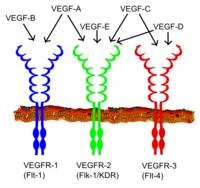
Autologous Skin Fibroblast‐Based PLGA Nanoparticles for Treating Multiorgan Fibrosis
Sign Up to like & getrecommendations! Published in 2022 at "Advanced Science"
DOI: 10.1002/advs.202200856
Abstract: Fibrotic diseases remain a substantial health burden with few therapeutic approaches. A hallmark of fibrosis is the aberrant activation and accumulation of myofibroblasts, which is caused by excessive profibrotic cytokines. Conventional anticytokine therapies fail to… read more here.
Keywords: autologous skin; skin; skin fibroblast; fibrosis ... See more keywords

Hydrogen Sulfide Suppresses Skin Fibroblast Proliferation via Oxidative Stress Alleviation and Necroptosis Inhibition
Sign Up to like & getrecommendations! Published in 2022 at "Oxidative Medicine and Cellular Longevity"
DOI: 10.1155/2022/7434733
Abstract: Keloid is a common dermatofibrotic disease with excessive skin fibroblast proliferation. Hydrogen sulfide (H2S) as the third gasotransmitter improves fibrosis of various organs and tissues. Our study is aimed at investigating the effects and possible… read more here.
Keywords: proliferation via; via oxidative; skin fibroblast; fibroblast proliferation ... See more keywords

Overexpression of miR-340-5p inhibits skin fibroblast proliferation by targeting Kruppel-like factor 2.
Sign Up to like & getrecommendations! Published in 2019 at "Current pharmaceutical biotechnology"
DOI: 10.2174/1389201020666190725112304
Abstract: OBJECTIVE MicroRNA (miR)-340-5p has been identified to play a key role in several cancers. However, the function of miR-340-5p in skin fibroblasts remains largely unknown. METHOD Gain of function was used by infecting the normal… read more here.
Keywords: overexpression; ontology; skin fibroblast; fibroblast proliferation ... See more keywords

Direct T-2 Toxicity on Human Skin—Fibroblast Hs68 Cell Line—In Vitro Study
Sign Up to like & getrecommendations! Published in 2022 at "International Journal of Molecular Sciences"
DOI: 10.3390/ijms23094929
Abstract: T-2 toxin is produced by different Fusarium species, and it can infect crops such as wheat, barley, and corn. It is known that the T-2 toxin induces various forms of toxicity such as hepatotoxicity, nephrotoxicity,… read more here.
Keywords: cell line; toxicity; toxin; human skin ... See more keywords